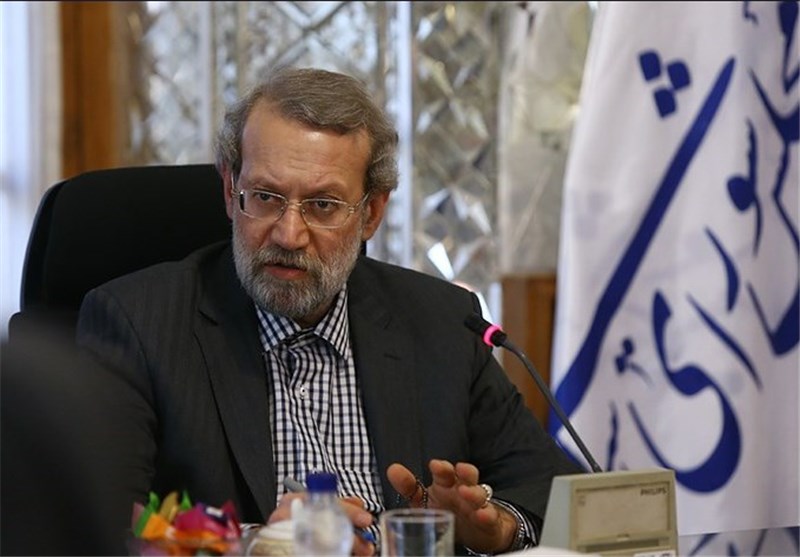Ali Larijani made the remarks on Wednesday, July 20, reacting to attempts by the UN’s Secretary General Ban Ki-moon and American politicians targeting the Joint Comprehensive Plan of Action (JCPOA), as the nuclear deal is officially known.
The UN chief recently submitted a report to the world body’s Security Council claiming that Iran’s ballistic missile tests “are not consistent with the constructive spirit” of the JCPOA. The report further urges Tehran to “refrain from conducting such ballistic missile launches since they have the potential to increase tensions in the region.”
Larijani said in his Wednesday remarks, “The Islamic Consultative Assembly (the Iranian Parliament) deplores the UN chief’s move and warns the US administration and the [US] House of Representatives and Senate that injurious measures against the nuclear agreement have reached such a level as to leave no option for Iran but to counteract.”
He said Ban’s report, while being legally non-binding for Iran, represented the secretary general’s “free fall.”
“On the one hand, the secretary general says in his report that Iran’s commitment to the [JCPOA] is encouraging, and on the other, he makes no reference to Iran’s concerns and complaints about the non-implementation of all of the Group 5+1’s obligations,” Larijani said.
“Had the Secretary General been tasked with producing a report on both side’s fulfilment of their obligations or is he the P5+1’s monitor in this?” the Iranian Parliament speaker said.
The JCPOA envisages Tehran scaling back its nuclear program in return for the lifting of all nuclear-related sanctions on the Islamic Republic.
However, months after the accord went into effect in January, the US and the European Union (EU) continue to maintain some sanctions on Iran, scaring off companies from resuming trade with the country.
European banks have balked at the idea of resuming transaction with Iran, fearing punitive US measures. US Republicans, meanwhile, are pushing through three anti-Iran bills in the Congress.
The Group 5+1 includes the US, Britain, Germany, Russia, France and China.
Larijani said the nuclear deal includes no reference to Iran’s ballistic missiles, adding that it is only Resolution 2231 where the subject pops up merely to call on Iran to refrain from developing missiles designed to carry nuclear warheads.
“Has Iran designed any such thing? Why would the UN chief then declare that the spirit of the JCPOA has been violated?” Larijani asked.
UN Security Council Resolution 2231, which was adopted on July 20, 2015 to endorse the JCPOA, puts no limits on Iran’s missile activities and merely “calls upon” Iran to refrain from engaging in developing missiles that are “designed to be capable of” carrying nuclear warheads.
Iran says it is involved in no such missile activity and has no such warheads.
The senior parliamentarian, meanwhile, asked the Atomic Energy Organization of Iran (AEOI) to prepare a plan for the development of a new nuclear plant to be used for enrichment purposes that would satisfy the country’s needs.
He asked that the AEOI notify the Parliament of proceedings regarding the development of the plant.
